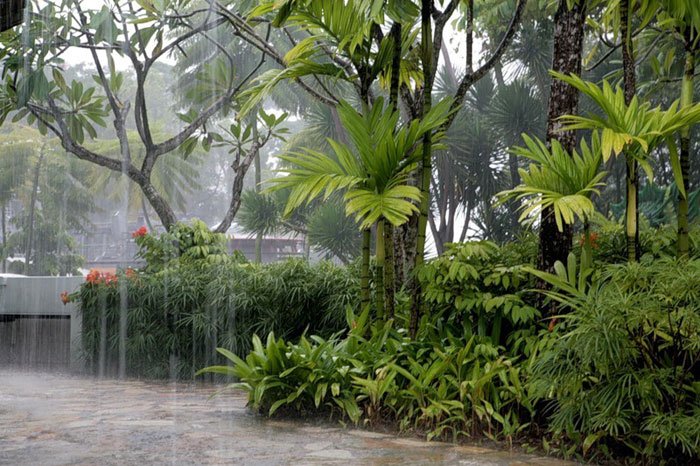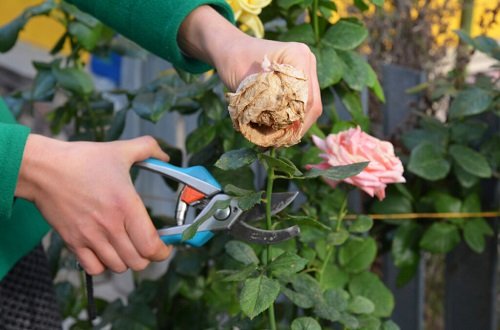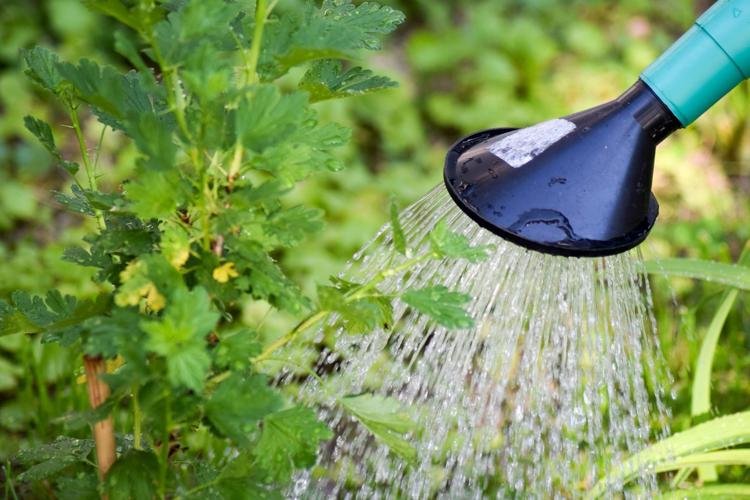Introduction to how to take care of Garden during rainy season Best Tips and Tricks:
The rainy season brings with it much-needed relief from scorching temperatures, rejuvenating our gardens with life-giving water. However, this season also posses unique challenges to our beloved plants. Excessive rain and increased humidity can lead to various issues, including fungal diseases and waterlogged soil. But fear not, as we are here to guide you on how to take care of garden during the rainy season. In this comprehensive guide, we will provide you with essential tips and tricks to ensure your garden thrives and remains a lush paradise even in the wettest months.

1. Understand Your Garden’s Drainage System:
Before the rainy season kicks in, it’s crucial to assess your garden’s drainage system. Proper drainage prevents waterlogging and ensures that excess rainwater flows away from the plants’ roots. Inspect your garden for any blocked or clogged drainage channels and clear them if necessary. If your garden lacks proper drainage, consider creating channels or using raised beds to improve water flow. Because its very essential to take care of garden during rainy season.
2. Choose Suitable Plants for best garden care in Rainy Season:
Selecting the right plants is key to ensuring a successful garden during the rainy season. Opt for plants that are naturally resilient to excess moisture and humidity. Some great options include ferns, hostas, impatiens, and certain varieties of ornamental grasses. Additionally, consider planting native species, as they are well-adapted to the local climate and are more likely to thrive during the rainy season.
3. Provide Adequate Shelter for garden during rainy season:
While rain is beneficial for your garden, heavy downpours can be damaging, especially to delicate plants and flowers. Consider providing temporary shelter, such as garden umbrellas or plant covers, to protect vulnerable plants during torrential rains. These coverings can also shield plants from potential hail damage, ensuring they remain healthy and vibrant.
4. Use Organic Mulch: To take care of Garden during Rainy Season
Mulching is a crucial practice during the rainy season. Organic mulch, such as shredded leaves or compost, helps retain soil moisture, regulate temperature, and suppress weed growth. Additionally, mulch acts as a protective barrier, preventing raindrops from directly hitting the soil and causing erosion. Apply a layer of mulch around the base of your plants, making sure not to pile it against the stems.
5. Prune and Maintain Your Plants:
Proper pruning is essential to ensure the health and vitality of your garden during the rainy season. Trim any dead or diseased branches to prevent the spread of fungal infections. Overgrown foliage can also trap moisture, leading to mold and mildew. Regularly remove any fallen leaves or debris from your garden to minimize the risk of disease and pest infestations. These are one of the best practices to take care of garden during rainy season.

6. Monitor Plant Health:
During the rainy season, it’s crucial to keep a close eye on your plants for any signs of distress or disease. Overly wet conditions can create an ideal environment for fungal infections and root rot. Look for yellowing leaves, wilting, or black spots on the foliage. If you notice any issues, promptly remove the affected parts and apply appropriate organic fungicides if necessary.
7. Water Wisely:
Although the rain may seem like enough water for your garden, not all plants receive adequate moisture during heavy downpours. Some areas may remain dry due to overhanging structures or tree canopies. Therefore, it’s essential to water your garden selectively. Use a watering can or hose to supplement rainfall in areas that need extra moisture, especially if you notice signs of drought stress in certain plants.

8. Control Garden Pests:
The rainy season can bring an influx of garden pests seeking shelter and food. Monitor your garden for signs of pests, such as aphids, slugs, and snails. Implement natural pest control methods like introducing beneficial insects or using homemade organic pest repellents. Keeping your garden pest-free will ensure your plants are strong and healthy throughout the rainy season. This is the best tips to take care of garden during rainy season.
9. Harvest Rainwater:
Make the most of the rainy season by harvesting rainwater. Collecting rainwater in barrels or containers not only helps reduce your water bill but also provides a natural, chlorine-free source of water for your plants. Use a fine mesh or filter to prevent debris and mosquitoes from entering the collected water.

Conclusion:
As the rainy season brings life and vitality to your garden, it’s essential to take care of garden during rainy season. With a few simple adjustments, such as improving drainage, selecting suitable plants, and maintaining a watchful eye for pests and diseases, you can transform your garden into a lush paradise even during the wettest months. Embrace the beauty of nature’s nurturing and continue to enjoy your garden’s splendor throughout the rainy season. With this essential tips and tricks, anyone can take care of garden during rainy season.
Remember, a little extra care and attention go a long way in ensuring your garden remains healthy, vibrant, and resilient in the face of rainy season challenges. Happy gardening


Very wonderful info can be found on site.Blog monry
I am really impressed together with your writing skills as smartly as
with the layout for your weblog. Is that this a paid theme or did you customize it
yourself? Anyway stay up the nice quality writing, it is rare to peer a
nice blog like this one these days. Instagram Auto follow!
Its free theme with some customizations.